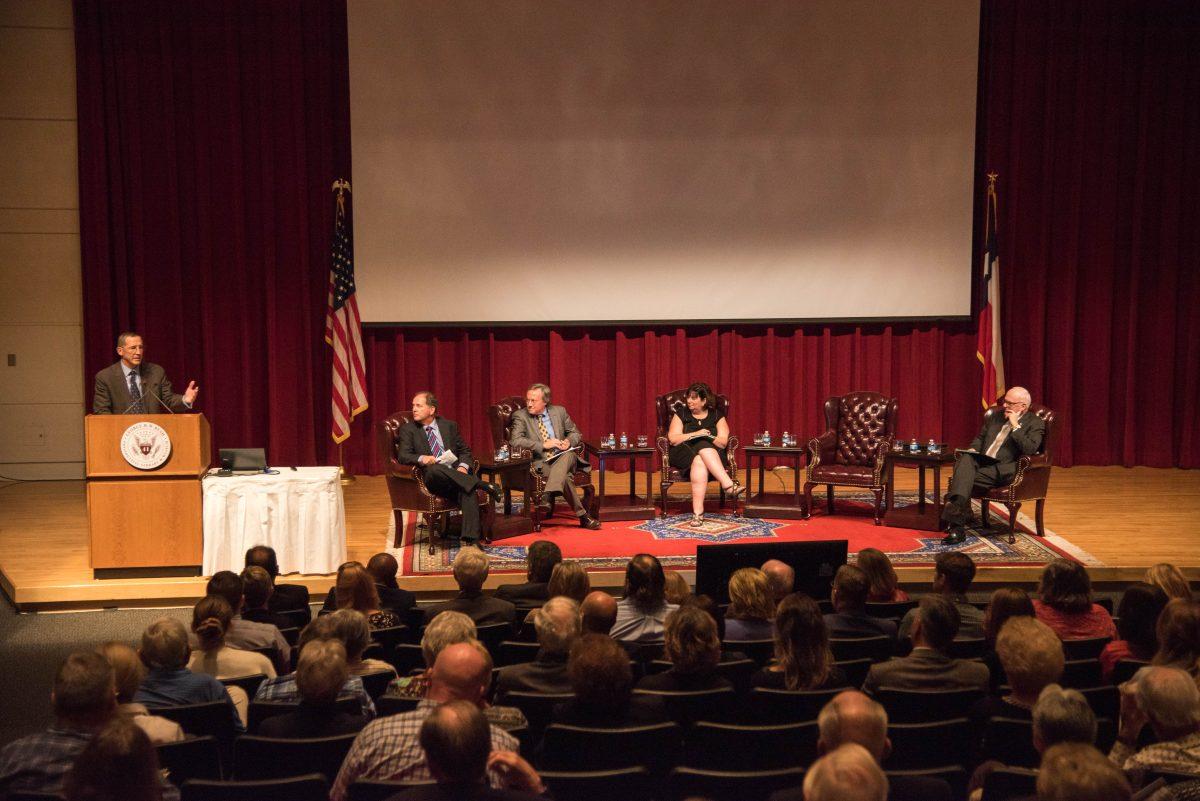Experts including library archivists and a CIA veteran gathered to discuss the topic of declassifying documents from a president’s time in office, specifically looking at the documents of the George H. W. Bush administration.
The panel was put on as part of a series of events celebrating the 20th anniversary of the George H. W. Bush Presidential Library and Museum. The discussion highlighted issues regarding the classification of government records, as well as the balance between national security and the public’s right to know.
The panel took a broad approach to the issue, looking at the declassification process in general the fine line between transparency and safety.
The significance of the event is linked to the fact that in Jan. 2018, it will mark 25 years since Bush 41 was president. Under the automatic declassification provisions originally put in place by an executive order during the Clinton administration, agencies like the CIA are required to declassify nonexempt, historically valuable records that are more than 25 years old.
This is a highly debated topic — some believe these documents should be open to the public as they are, while others think including historical context would help the general public better understand, according to presidential library archivist and panelist Nancy Morgan, Director of Information Management Services.
“I think our most successful package is when we provide some context with it, which is why we frankly prefer a more discretionary release process as opposed to just large bulk quantities all at once so we can add some of the context that goes with it,” Morgan said.
Stephen Randolph, Historian of the U.S. Department of State, spoke on the value of responsible transparency and the idea of a horizon that moves over time and permits more openness, using the example of covert operations.
“We’re well aware of the risks that can be attached to those, and sometimes it just takes time before the risks can be dissipated,” Randolph said. “So direct dialogue in our case and a general conceptual framework is pretty useful.”
Bush School senior lecturer and CIA veteran James Olson gave an overview of the complex thought process that goes into deciding which documents to declassify and when to declassify them, acknowledging that to call it an imperfect process “would be giving it too much credit.”
Olson said while he sometimes feared that identities or operations would be jeopardized with the release of classified information, unauthorized leaks of information by people like Edward Snowden and Chelsea Manning were far more damaging.
“This form of illegal declassification by self-appointed whistle-blowers is, in my opinion, pernicious and chaotic,” Olson said. “I find it particularly repugnant that some of the leaks appear to have come from inside the intelligence and law enforcement communities. Never, ever is that justified.”
Thomas Blanton, Director of the National Security Archive at George Washington University, said incidents like the Snowden leaks have forced the intelligence community to adjust their treatment of documents, leading to more transparency in that particular case.
“As a result of the Snowden leaks, the Director of National Intelligence set up a process to systematically release the surveillance-related materials,” Blanton said. “Two years after the first Snowden leak, the intelligence community had actually declassified and published more papers than all the Snowden media partners had yet published.”
Declassification discussion
October 22, 2017
Photo by Photo by Jenny Hollowell
The panel included experts in their field Thomas Zeiler, Thomas Blanton, Nancy Morgan and James Olson.
Donate to The Battalion
Your donation will support the student journalists of Texas A&M University - College Station. Your contribution will allow us to purchase equipment and cover our annual website hosting costs.




















